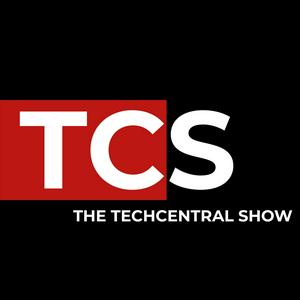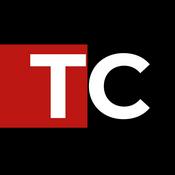136 episodes
BMW CEO Peter van Binsbergen on the future of South Africa’s automotive industry
2026/1/20 | 30 mins....This corrects an audio issue with the previous version...
South Africa’s automotive industry is in a state of flux. In this episode of the TechCentral Show, BMW Group South Africa CEO Peter van Binsbergen unpacks the challenges – and opportunities – facing a sector under pressure.
He tells TechCentral editor Duncan McLeod about the future of BMW’s Rosslyn manufacturing plant in Pretoria, which was established more than half a century ago, and the urgent need for new government policy to ensure the automotive industrial base in South Africa is future-fit and ready for the shift to electric mobility.
Van Binsbergen also discusses the rise of imported vehicles in the sales mix in South Africa – including the rapid expansion of Chinese brands. China is a market he knows well, having spent three years there with BMW.
In the interview, TechCentral Show viewers will also hear about:
• The state of the local automotive manufacturing industry;
• What South Africa needs to implement in policy reform to ensure the automotive industrial base in South Africa – and why this is urgent;
• How the country must adapt to the global shift to electric mobility;
• The role of BMW’s IT Hub in South Africa;
• BMW’s global EV strategy, and what that means for South African EV buyers; and
• BMW’s Neue Klasse vehicles, which run the company’s next-generation EV platform, and why they are significant to its future.
Don’t miss a fascinating discussion!- South Africa’s big three telecommunications operators have all reported numbers in recent weeks, and the theme is clear: competition in prepaid has intensified sharply.
Telkom’s resurgence has put pressure on both MTN and Vodacom, with MTN acknowledging it has “discernibly” lost prepaid market share.
This is one of the topics covered in this wide-ranging and exclusive TechCentral Show interview with MTN Group CEO Ralph Mupita, who sat down earlier this week with TechCentral editor Duncan McLeod to discuss this and other major topics, including:
• The impact of online gambling on the telecoms sector;
• The need for further consolidation in South African telecoms, and why Mupita won’t completely rule out a deal with Telkom, provided the “stars align”;
• Vodacom’s acquisition of a co-controlling stake in Vumatel parent Maziv and how MTN will respond;
• The impact of low-Earth orbit satellite connectivity on the telecoms industry and how MTN plans to work with companies like SpaceX/Starlink and Amazon Leo – and whether he sees them as competitors or partners (or both);
• The spectacular turnaround in Nigeria and whether it’s durable;
• The future of MTN’s involvement in Iran, and the lessons learnt from the group’s exit from other Middle Eastern markets;
• Plans to shift MTN Group’s focus to East Africa in the coming years; and
• Why he’s fascinated by the impact that AI could have on telecoms in Africa.
Don’t miss a great discussion on the future of MTN and telecoms in Africa! - Returning to the TechCentral Show is ICT regulatory expert Dominic Cull, founder of Ellipsis and regulatory advisor to the Internet Service Providers’ Association (Ispa). Cull recently attended communications minister Solly Malatsi’s policy colloquium in Pretoria – the first under a non-ANC communications minister.
Cull says there is a discernibly different tone from Malatsi compared to his predecessors: more openness, more willingness to engage stakeholders and a stronger focus on evidence-based policymaking. However, while the intent is encouraging, South Africa’s ICT policy environment remains inconsistent, slow and fragmented.
In the podcast, Cull discusses:
• Malatsi’s policy colloquium and what came out of it
• The state of ICT policy and regulation in South Africa
• The biggest policy bottlenecks holding back growth in the ICT sector
• Why government doesn’t fully grasp the economic impact of digital infrastructure
• The latest on the next spectrum auction
• The EU’s decision to hand much of the 6GHz band to mobile operators – and why South Africa shouldn’t blindly copy it
• What’s needed to fix the Rica legislation
• Why Starlink isn’t coming to South Africa anytime soon
Cull also shares the top priority areas he’d focus on in 2026 if he was minister of communications.
It’s a great discussion – don’t miss it! BMW CEO Peter van Binsbergen on the future of South Africa’s automotive industry
2025/11/06 | 30 mins.South Africa’s automotive industry is in a state of flux. In this episode of the TechCentral Show, BMW Group South Africa CEO Peter van Binsbergen unpacks the challenges – and opportunities – facing a sector under pressure.
He tells TechCentral editor Duncan McLeod about the future of BMW’s Rosslyn manufacturing plant in Pretoria, which was established more than half a centry ago, and the urgent need for new government policy to ensure the automotive industrial base in South Africa is future-fit and ready for the shift to electric mobility.
Van Binsbergen also discusses the rise of imported vehicles in the sales mix in South Africa – including the rapid expansion of Chinese brands. China is a market he knows well, having spent three years there with BMW.
In the interview, TechCentral Show viewers will also hear about:
• The state of the local automotive manufacturing industry;
• What South Africa needs to implement in policy reform to ensure the automotive industrial base in South Africa – and why this is urgent;
• How the country must adapt to the global shift to electric mobility;
• The role of BMW’s IT Hub in South Africa;
• BMW’s global EV strategy, and what that means for South African EV buyers; and
• BMW’s Neue Klasse vehicles, which run the company’s next-generation EV platform, and why they are significant to its future.
Don’t miss a fascinating discussion!- Altron earlier this month announced that it has deployed an "AI factory" in one of Teraco’s new Johannesburg data centres. Powered by Nvidia AI infrastructure and software, the factory is has already gone live with half a dozen customers.
In this episode of the TechCentral Show, Altron Group chief technology officer Bongani Andy Mabaso explains the rationale for the investment, what building the factory entailed and what the anchor tenants are using the platform to do.
Mabaso tells TechCentral editor Duncan McLeod:
• What an AI factory is exactly and why Altron has decided to build one;
• What’s involved in deploying AI infrastructure, especially from a power and cooling perspective – and why Altron decided to locate its AI factory at Teraco;
• What companies like Lelapa AI, MathU and Dataviue are using the Altron AI Factory to do;
• Why Altron partnered with Asus and HPE on the project;
• How the infrastructure can be used; and
• The advantages of hosting an AI factory in South Africa, as opposed to an offshore data centre – it’s not only about better network latency.
Don’t miss the conversation!
More Business podcasts
Trending Business podcasts
About TCS - The TechCentral Show
The TechCentral Show (TCS, for short) is a tech show produced by South Africa's leading technology news platform. It features interviews with newsmakers, ICT industry leaders and other interesting people.
Podcast websiteListen to TCS - The TechCentral Show, The Prof G Pod with Scott Galloway and many other podcasts from around the world with the radio.net app

Get the free radio.net app
- Stations and podcasts to bookmark
- Stream via Wi-Fi or Bluetooth
- Supports Carplay & Android Auto
- Many other app features
Get the free radio.net app
- Stations and podcasts to bookmark
- Stream via Wi-Fi or Bluetooth
- Supports Carplay & Android Auto
- Many other app features


TCS - The TechCentral Show
Scan code,
download the app,
start listening.
download the app,
start listening.









































